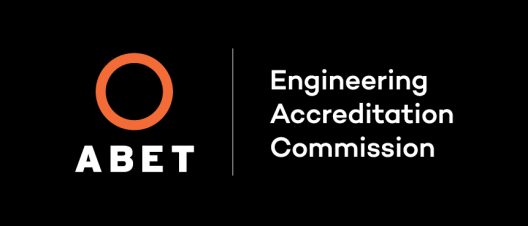ABET Accreditation: BSE
ABET Accreditation
The Bachelor of Science degree in Bioresource Science and Engineering is accredited by the Engineering Accreditation Commission of ABET, under the commission’s General Criteria with no applicable program criteria.
Why ABET Accreditation Matters describes the importance of this accreditation and selecting an ABET-accredited program for your education.
The ABET accredited designation means that the BSE program graduates:
- have met the educational requirements necessary to enter the engineering profession
- can be assured that industry has had opportunities to guide the BSE educational process to reflect current and future industry needs
- have a degree that enhances professional mobility both in the United States and internationally
Graduation from an accredited program assures employers and graduate schools, among others, that the graduate is well prepared for an engineering career. Many employers, graduate schools, licensing boards, and other groups require graduation from an accredited program as a minimum qualification for consideration.
BSE Educational Objectives
The BSE program has three broad educational objectives. These objectives are the long term goals that are set for students. Each objective is supported by a number of program outcomes which are those skills and abilities we expect students to have when they graduate from the program so they can achieve the objectives. By graduating, students will:
- Engage in successful careers demonstrating engineering excellence.
- Be leaders in identifying and creatively resolving, using sound professional judgment, significant bioresource issues.
- Develop the intellectual maturity to serve their profession and community.
BSE Student Outcomes (ABET Criterion 3)
The following are the Bioresource Science and Engineering student outcomes that prepare BSE graduates to attain the educational objectives listed above. Each graduate will have the ability to:
- Identify, formulate, and solve complex engineering problems by applying principles of engineering, science and mathematics.
- Apply the engineering design process to produce solutions that meet specified needs with consideration for public health and safety, and global, cultural, social, environmental, economic and other factors as appropriate to the discipline.
- Communicate effectively with a range of audiences.
- Recognize ethical and professional responsibilities in engineering situations and make informed judgments, which must consider the impact of engineering solutions in global, economic, environmental and societal contexts.
- Function effectively on a team whose members together provide leadership, create a collaborative and inclusive environment, establish goals, plans tasks to meet deadlines and meet objectives.
- Develop and conduct appropriate experimentation, analyze and interpret data and use engineering judgment to draw conclusions.
- Recognize the ongoing need to acquire new knowledge using appropriate learning strategies and to correctly apply this knowledge.
In addition to the above, the BSE faculty have identified an additional Student Outcome:
- Apply knowledge of fiber and paper science, environmental science, chemistry and engineering as it pertains to the bioresource, paper and allied industries.
